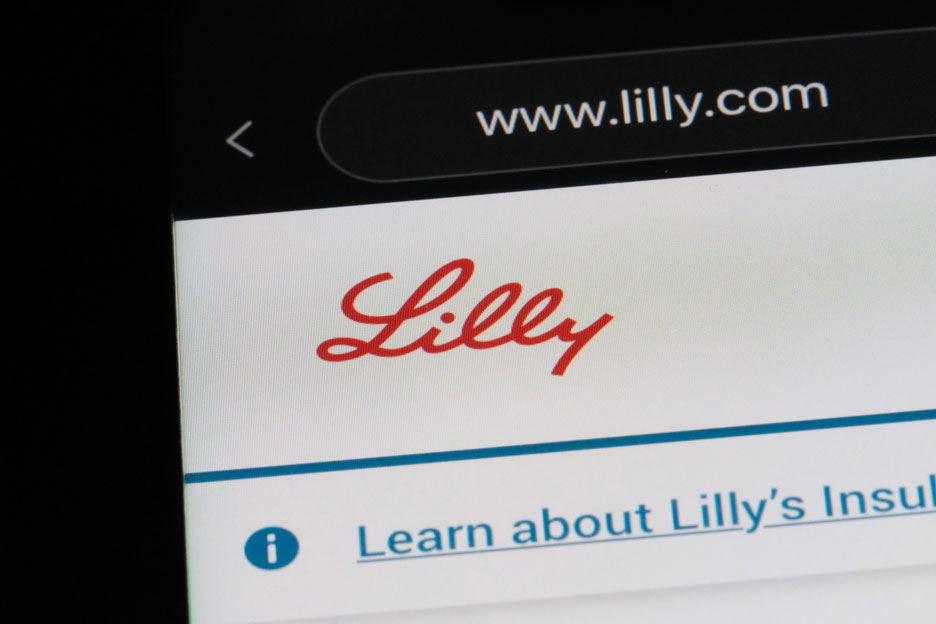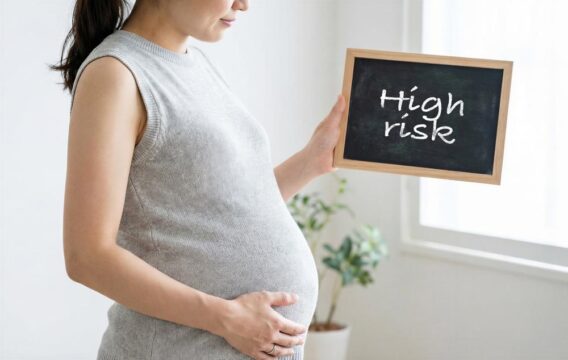Advertisment
Landmark 5-year monarchE outcome data demonstrate Verzenio (abemaciclib)’s long-term impact on cancer recurrence in high-risk early breast cancer – Eli Lilly

Eli Lilly and Company announced five-year outcomes from a pre-planned analysis of the Phase III monarchE study evaluating two years of adjuvant Verzenio (abemaciclib) in combination with endocrine therapy (ET) compared with ET alone in patients with HR+, HER2-, node-positive early breast cancer (EBC) at a high risk of recurrence. These data were shared in a late-breaking presentation at the 2023 European Society for Medical Oncology (ESMO) Congress.
“The five-year time period is an established landmark for adjuvant breast cancer clinical trials and is an important milestone for patients and physicians in this curative setting,” said Nadia Harbeck, M.D., Ph.D, Director of the Breast Center and Chair for Conservative Oncology, Department of OB&GYN, LMU University Hospital (Munich, Germany), monarchE investigator, and presenter of the results at the 2023 ESMO Congress. “These five-year monarchE data clearly demonstrate a carryover effect beyond the completion of two years of abemaciclib treatment, with the IDFS and DRFS curves continuing to separate, reinforcing confidence in the role of abemaciclib added to endocrine therapy in the adjuvant setting for those with a high risk of recurrence.”
The data presented include results from a pre-specified analysis reflecting a median follow-up of 4.5 years. All patients have completed the Verzenio treatment course, with more than 80% of patients having been followed for at least two years after completion. In the intent-to-treat (ITT) population, the risk of developing invasive disease was reduced by 32% (HR=0.680, 95% CI: 0.599, 0.772; nominal p<0.001). The absolute increase in invasive disease-free survival (IDFS) and distant relapse-free survival (DRFS) continued to deepen in magnitude at five years, to 7.6% and 6.7%, respectively, reflecting improvements from the two-, three-, and four-year rates. With the majority of the IDFS events being DRFS events, the DRFS benefit was also maintained with Verzenio reducing the risk of developing distant recurrence or death by 32.5% (HR=0.675, 95% CI: 0.588, 0.774; nominal p<0.001). In this five-year outcome analysis, the Kaplan-Meier curves continued to separate, confirming a sustained benefit beyond the two-year treatment period. IDFS and DRFS results for Cohort 1 were consistent with those for the ITT population. As reported previously, IDFS and DRFS benefit was seen across subgroups.
While overall survival (OS) data remain immature, fewer deaths were observed in the Verzenio arm (208 [7.4%] of 2,808 patients) compared to the control arm (234 [8.3%] of 2,829 patients) (HR=0.903, 95% CI: 0.749, 1.088; p = 0.284). Nearly twice as many patients receiving ET alone (n=269) developed and are living with metastatic disease compared to those receiving Verzenio (n=138).
There were no new safety findings, and overall results are consistent with the well-established safety profile for Verzenio. The most frequent adverse events (AEs) were diarrhea, neutropenia, and fatigue in the Verzenio-plus-ET arm, and arthralgia, hot flush, and fatigue in the ET-alone arm. The most common Grade 3-4 AEs were neutropenia, leucopenia, and diarrhea in the Verzenio arm and arthralgia, neutropenia, and ALT increased in the control arm.
Additionally, Lilly presented analyses showing that dose reductions did not compromise the efficacy of Verzenio in monarchE, which is consistent with published results of Verzenio in the metastatic setting. Dose reductions, when needed, can be an effective strategy in managing side effects and support the goal of maximizing treatment adherence for the two years of Verzenio treatment in high-risk early breast cancer.
“The mature recurrence efficacy benefit demonstrated in monarchE, achieved with a two-year treatment duration, reinforce Verzenio as the standard of care in this curative setting, where Verzenio is the only CDK4/6 inhibitor approved to treat people with HR+, HER2-, node-positive, high risk early breast cancer,” said David Hyman, M.D., chief medical officer, Lilly. “Reaching the 5-year outcomes benchmark with adjuvant Verzenio should provide further confidence for those patients where treatment intensification is needed to help them achieve their goal of remaining cancer-free.”
Updates from the Imlunestrant Clinical Development Program: In a separate mini oral presentation on Sunday, October 22, Lilly will share data from the Phase 1a/b EMBER study, evaluating imlunestrant – an investigational, oral selective estrogen receptor degrader (SERD) – as a monotherapy and in combination with everolimus or alpelisib for people with estrogen receptor positive (ER+), HER2- advanced breast cancer. These are the first clinical data on these combinations. Results demonstrated that single agent imlunestrant had a clinical benefit rate of 42% and this increased to 62% when given in combination with everolimus or alpelisib (both approved agents in the second-line setting). Side effects were mostly low grade for single agent imlunestrant, and the combination regimens had a similar side effect profile to everolimus or alpelisib given in combination with standard endocrine therapy.
About the monarchE Study monarchE was a global, randomized, open-label, two cohort, multicenter Phase III clinical trial that enrolled 5,637 adults with HR+, HER2-, node-positive EBC at high risk of recurrence. The study enrolled patients across more than 600 sites in 38 countries and is the only adjuvant study designed to investigate a CDK4/6 inhibitor specifically in a node-positive, high risk EBC population. To be enrolled in Cohort 1 (n=5,120), which is the FDA-approved population, patients had to have 4+ positive nodes or 1-3 positive nodes and at least one of the following: tumors that were greater than 5 cm or Grade 3. Patients enrolled in Cohort 2 could not have met the eligibility criteria for Cohort 1. To be enrolled in Cohort 2 (n=517), patients had to have 1-3 positive nodes and Ki-67 score greater than 20%. Patients in each cohort were randomized 1:1 to receive either Verzenio 150 mg twice daily plus standard-of-care adjuvant ET (Cohort 1, n=2,555; Cohort 2, n=253) or standard-of-care adjuvant ET alone (Cohort 1, n=2,565; Cohort 2, n=264) for 2 years. ET continued for at least 5 years if deemed medically appropriate. The primary endpoint was IDFS. Consistent with expert guidelines, IDFS was defined as the length of time before breast cancer comes back, any new cancer develops, or death.
About Early Breast Cancer and Risk of Recurrence : It is estimated that 90% of all breast cancers are detected at an early stage. Approximately 70% of all breast cancer cases are the HR+, HER2- subtype. Although the prognosis for HR+, HER2- EBC is generally favorable, high risk patients are three times more likely than those with low risk characteristics to experience recurrence – with the majority being incurable metastatic disease. These patients have an increased risk of recurrence during the first two years of endocrine therapy. Factors associated with high risk of recurrence in HR+, HER2- early breast cancer include: positive nodal status, the number of positive nodes, large tumor size ( greater than 5 cm), and high tumor grade (Grade 3). Node-positive means that cancer cells from the tumor in the breast have been found in the lymph nodes near the breast. Although breast cancer is removed through surgery, the presence of cancer cells in the lymph nodes signifies that there is a higher chance of developing recurrence and distant metastatic disease.





